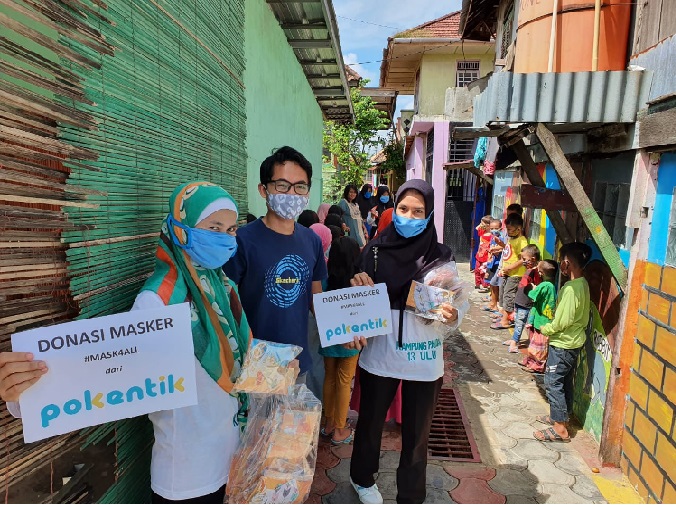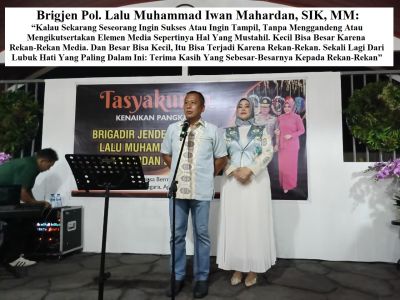Exploring Grass-Roots Initiatives to Mitigate Covid-19 in Indonesia
ASEAN Countries and NGO Emphatic in Social Welfare

Real Action around Citizen in Social Welfare Problem Settlement
INTERNATIONAL | ASEAN -
“After Indonesia initiated a form of stay-home policy in early 2020, children were expected to do all of their learning online. This was a significant problem for many in Indonesia because not only is the internet unreliable, but there are frequent power outages.”, writes Dr Najmah Usman, a lecturer in the Public Health Faculty of Sriwijaya University, South Sumatra, Indonesia and Dr Sharyn Graham Davies, an Associate Professor of Indonesian Studies and Director of the Monash Herb Feith Indonesian Engagement Centre.
In May 2020, Indonesian President Joko Widodo informed citizens they must learn to coexist with Covid-19, and while health guidelines should be followed, priority must be given to driving economic productivity (Adjie, 2020). While other countries argued the best economic response to Covid-19 is a health response (Long et al), the Indonesian government, for reasons including capacity, provided a largely hands-off health approach. To fill this health response void, grass-root initiatives took on the burden of supporting local communities. In this blog we examine how working together at the grass-roots level enables communities to support each other in their efforts to mitigate the impact of Covid-19.
We share three stories of communities working together. First, we tell of how a group of mothers came together to learn about Covid-19 so they could better safeguard the health of their children. Second, we tell of how a group of university students came together to share Covid-19 health information on Instagram and online news to improve Covid-19 health literacy. Third, we tell of how a group of epidemiologists came together to design a predictive modelling scale to help people understand the seriousness of Covid-19 case numbers. Insights gained from these stories will be useful for government policy makers and other stakeholders in supporting Covid-19 mitigation efforts.
The Indonesian government has rightly been criticised for its lack-lustre response to Covid-19. At best, the response has been negligent. At worst, it has been deliberately misleading. But as is often the case, when a government fails to react, grass-roots organisations step in to fill the void. By supporting their communities in meaningful, if small-scale, ways grass-roots initiatives restore hope in humanity’s kindness and care for each other.
In this blog, we share grass-roots initiatives that have stepped in where national and local governments have failed. In sharing these stories, we hope to advance Southeast Asia research and offer insights capable of informing officials and policy makers in governments and stakeholders in business and civil society, regarding the key issues and challenges in relation to Covid-19 in Indonesia. In particular, we hope readers will find this piece useful not only because it offers insights into different grass-roots initiatives, but also because the area of focus is Palembang, the capital city of South Sumatra, a little considered area in Indonesia’s response to Covid-19. But, it is precisely these smaller, out-of-the-way places, which can be instructive in inspiring beneficial and appropriate Covid-19 responses.
Covid-19 in Indonesia
Statistics are incredibly unreliable in Indonesia in relation to Covid-19. Few tests are performed, and the numbers of reported cases are likely far lower than actual cases. As of October 2020, there are around 316 000 confirmed cases in Indonesia (Worldometer, 2020). Given that Indonesia’s population, 267 million, is four-fifths of the US’s 328 million, and that Indonesia, with much poorer standards of healthcare provision, has reported only 11,000 COVID-19-related deaths while the US has reported 211,000, it is possible that Indonesia’s actual COVID-19-related death toll might be far worse than reported, perhaps even by a factor of ten.
Empowering communities
After Indonesia initiated a form of stay-home policy in early 2020, children were expected to do all of their learning online. This was a significant problem for many in Indonesia because not only is the internet unreliable, but there are frequent power outages. Moreover, few children own a device suitable for home-schooling. Given limited home-schooling options, many children spent their home-time playing with each other outside. Masks were non-existent and despite government guidelines to social distance, children did not heed this, nor did parents understand the importance of such measures.
Noticing the lack of Covid-19 awareness amongst children and their parents, Najmah, one of the authors of this blog, organised a village meeting in April 2020. This meeting brought together mothers, teachers, community leaders and colleagues and alumni from the Faculty of Public Health Faculty at the University of Sriwijaya. At this meeting, a call was put out asking for donations of money, masks, and soap. The response received was overwhelming, showing that a community can and does rally together to help each other.
A further result of this initial meeting was a program dedicated to raising awareness about Covid-19 amongst children. The program was called Penyuluhan Keliling Anak (Pangling, Children’s Mobile Counselling Service). This new program was one of a number that came under the Smart Village program (Kampung Pandai 13 Ulu). In order to run this program, Najmah ran a series of workshops between April and July 2020 educating ten mothers from a small village (Figure 1 and 2). These mothers then helped raise awareness in their communities so that children understood the importance of following Covid-19 health protocols. In their volunteer capacity, these mothers gave out over 1000 masks, 500 bars of soap, and educated over 200 children aged 5-12 through weekly activities such as playing sports.
A specific part of this coming together was giving mothers the information they needed to better protect their children. Part of the problem in Indonesia regarding Covid-19 is that senior government ministers have shared harmful advice. For instance, a minister said that wearing a eucalyptus necklace would prevent someone contracting Covid-19. Worse, a minister in the Ministry of Health made the controversial statement that
""we are not afraid of Diphtheria so of course we are not afraid of Covid-19 … the flu is more dangerous than Covid-19 … masks are only for sick people.""
To counter this misinformation, through informal community meetings, Najmah shared with people the benefit of wearing a mask, washing hands, and maintaining social distance. Once people understood the reason for this, not only did parents follow these recommendations, but children encouraged their parents to do so too
Editor :Andi Saputra
Source : ASEAN and LSE



























